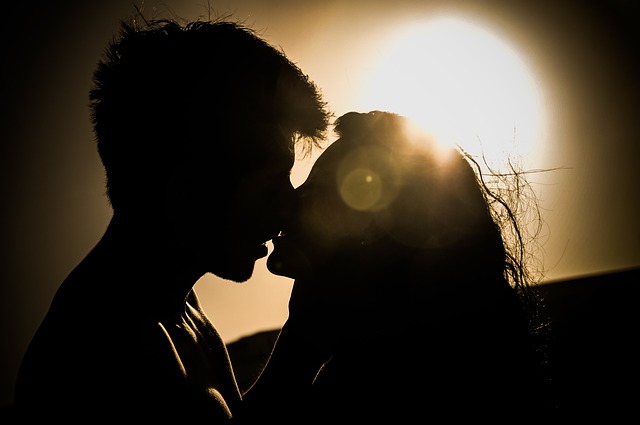Tips for Writing Your First Romance Novel

Penning your first romance novel?
While romance may seem like the easiest genre to write, it is definitely not. The average romance reader is smart, discerning and not easily impressed. To create a successful romance, it takes a thoughtful strategy. It won’t just happen magically.
Let’s discuss what you need to know to create a romance novel that makes the reader fall in love and then tell her friends about it.
By the way, I apologize ahead of time for the double entendres and puns that are scattered around this post, but how could I not?
Need help marketing your romance novel? Subscribe to receive this helpful list of resources.
Follow the Formula

To create a satisfying romance novel, you need to follow a tried and true formula. It’s this:
Boy meets girl.
Boy loses girl.
Boy gets girl.
There’s no use in trying to reinvent the wheel here. Most romance readers will demand that your story follows this formula.
But the good news is, there are millions of different ways you can write this story without it sounding, well, formulaic.
Choose a Familiar Plot Device
Three of the most popular romance plot devices are:
- Friends become lovers
- You’re my soulmate, it’s fate
- This is my second chance to love again
While there are different devices you can use in your story, such as rich and sadistic billionaire playboy meets mousy, unsure girl, you can’t go wrong with the above tropes. Readers want to see themselves in the heroine. They want to believe that this love interest exists. And they want the story to be in some way relatable to their own lives.
Understand Your Audience
When you write a romance novel, you start out with one big advantage. You already know who your reader is: it’s a woman. To be more specific, it’s a middle class and middle aged woman from the South. They like ice tea and hot romance, and I say that with affection as a true southerner.
You may think I’m just joking, but statistics show that 82% or romance book buyers are women. The majority of these women read romance novels at least once a month, but over a third buy more than one romance novel each month.
And these readers are seasoned. 35% have been reading romance novels for 20 years plus. If you crunch the numbers, the average reader was read well over 200 romance novels in their lifetime.
So, keep in mind that you’re probably not going to surprise them with plot (romance stories usually follow the predictable formula we discussed above), but you can provide them with interesting characters to care about and introduce them to a new world that they’ve never experienced before.
Introduce the Heroine
Now that you have a clear understanding of who your reader is, it’s easier to create a heroine that she will love to read about. Although it’s possible to craft a story around a teenage girl and her first love, it may not resonant if your reader is in her 40s. She wants to see a heroine she can relate to.
So, create a heroine that reflects your average reader. Your heroine and the reader should share some sympathetic characters. Here are some ideas you can use to reflect the reader in your romance novel:
- The age of your protagonist
- The mentality of your protagonist
- Physical attributes of your protagonist (hair color, eye color, ethnicity)
- Where your protagonist lives
- What your protagonist does for a living
Psst, don’t forget to check out our guide on writing women here.
Introduce the Love Interest
So, how do you create the perfect love interest for your protagonist? Don’t make him perfect.
Make him imperfect. The protagonist shouldn’t immediately love him or, even if she does, there should be something that gives her pause (age, relationship, etc.).
Make the reader fall in love with him, too. It’s not enough for the heroine to love him, the reader needs to get it. Make the reader care about both main characters. Take your time to create rounded and realistic characters.
In other words, don’t just objectify the hero. He should have faults but a true admiration for the heroine. And he should have a growth arc through the story as well.
What’s the Motivation?
What is driving these two characters in a collision course with each other? For this, you’ll need to know the background for each character. I highly recommend creating a character bible. It’s an important part of the process for character creation in any genre but holds special significance in the romance genre. Here’s why:
Romance characters can often fall flat, if you’re not careful. In a bid to push the characters towards a happy ending, writers may ignore motivation.
So, what exactly do I mean by motivation?
Motivation is the reason why a character does something. It can be something they believe about themselves, something they believe about the other person, or something they want to happen (or not happen).
Motives are usually born in the backstory. The reason why a character opts for one course of action over another is based on something that the reader may not know (but you should definitely know).
Perhaps the heroine doesn’t trust men because her father left her mother. While that may or may not enter into the story, it’s important that you know your character well enough to know the meaning behind her actions. If you can understand her psychology, you can create a character that’s whole, authentic and realistic, even if you don’t tell the reader everything that you know.
You may give glimpses to the reader, but as the writer, should always know the motivation of each character at every point within your story.
Let’s Talk About Sex

Clutch your pearls, boys and girls. It’s time to talk about sex.
So, the question is, should you go graphic and ultra specific with a fully fleshed out (I warned you about the puns) sex scene? Or should you leave a lot to the reader’s imagination?
The answer depends on you. Do you want to write descriptive sex scenes? Or does the thought of using the word “throbbing” make you want to curl up in a fetal position and hum?
There’s no shame in acknowledging that “sexy time” writing is not for you. You can still create a wonderfully romantic, passionate story without going behind closed doors. However, if you do decide to write about sex, remember your audience is women, not teenage boys, and they prefer context to sex. They don’t want gratuitous sex, they want emotion that’s illustrated with sex.
Location, Location, Location
As you know, you use setting to create the mood and atmosphere of your story. But the setting can also become a main character in your romance novel.
You can do historical, you can do contemporary. You can do bucolic, you can do metropolitan. But choose a setting that adds tension to the characters in some way.
Additionally, think of ways to use the setting to differentiate your romance. Instead of setting your story in any town, USA, why not set it on a mission to Mars?
Choosing an unusual setting for your romance novel can help you stand out in a “been there, done that” genre.
A Happy Ending
You need to create a satisfying ending to your novel. If you don’t, it will completely ruin the story for your reader and, perhaps worse, discourage them from reading any other romance novel you publish in the future. That’s not good.
The best plot is the one where the boy gets the girl at the end. Period. So, no matter what it takes to get your characters to this ending, make it happen.
Need help marketing your romance novel? Subscribe to receive this helpful list of resources.




